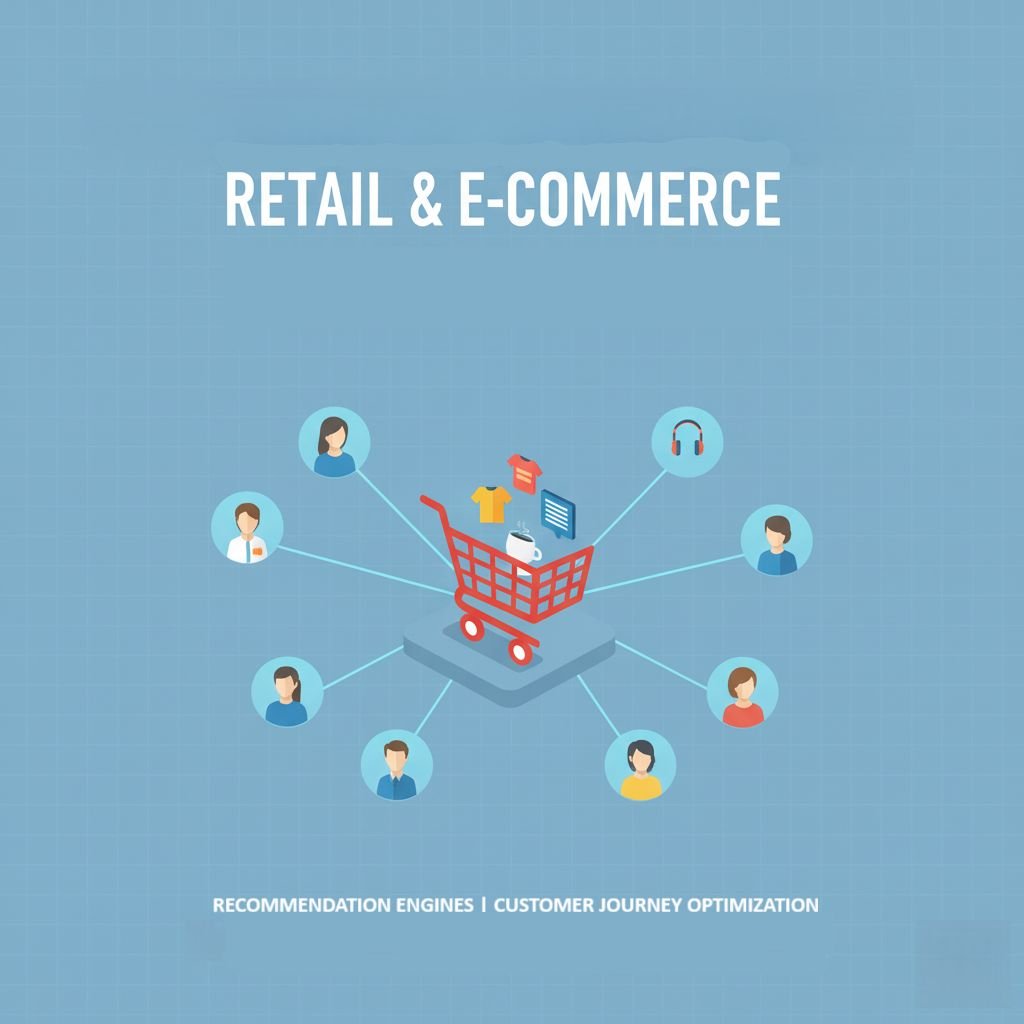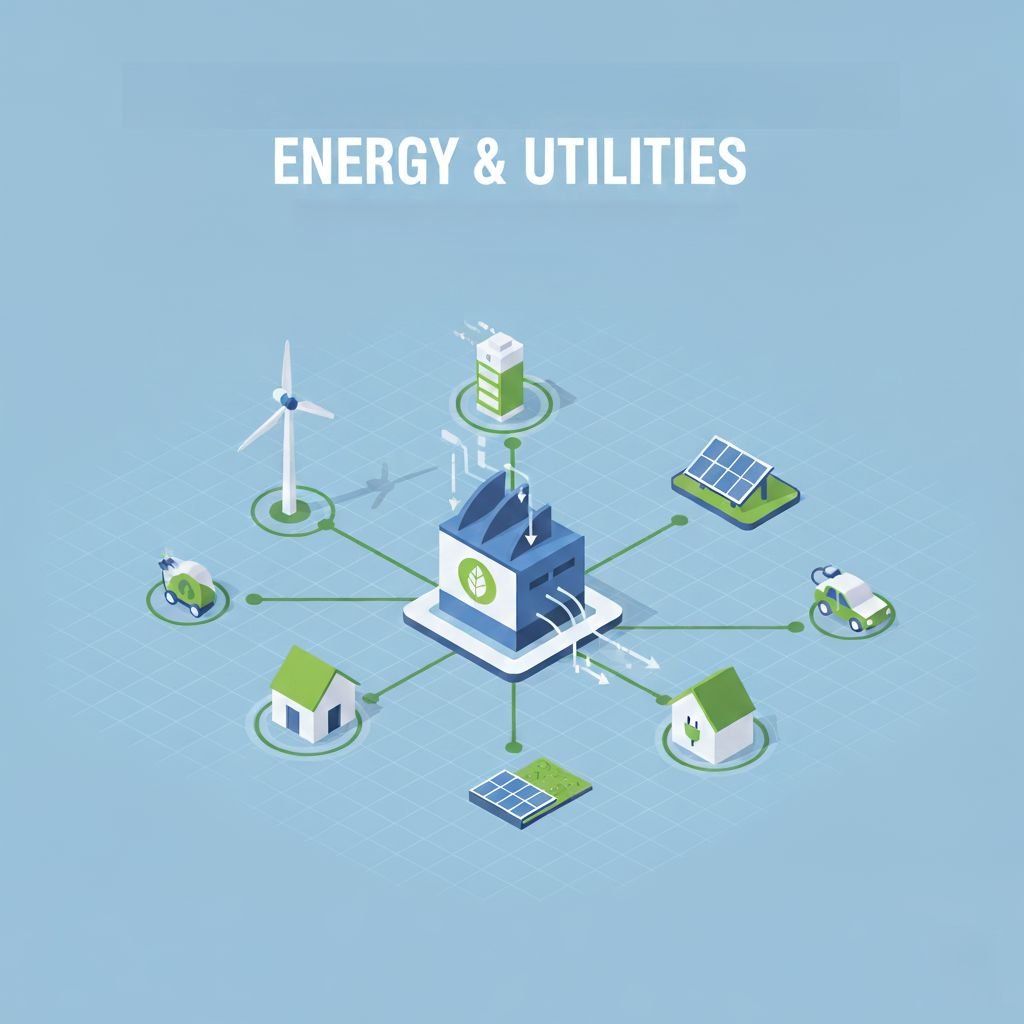Introduction
What if the recommendation that made you binge-watch your favorite Netflix show, the fraud alert that saved your credit card, and the AI tool that scans medical images for early signs of cancer—all stemmed from the same underlying technology? That’s the reality of machine learning use cases today.
Machine learning (ML) has rapidly moved from academic labs into boardrooms, hospitals, banks, and even your smartphone. But the beauty of ML isn’t just in the technology—it’s in how it reshapes industries with practical, sometimes life-saving, applications. In this article, we’ll explore machine learning use cases across industries, breaking down how organizations are leveraging ML to create efficiency, innovation, and competitive advantage.
Why Machine Learning is so Transformative
Unlike traditional programming, where rules are explicitly coded, machine learning thrives on patterns. Feed it enough quality data, and ML systems can detect fraud in milliseconds, personalize ads at scale, or predict when a machine part will fail before it does.
What makes ML transformative is its adaptability. Instead of being confined to one industry, its algorithms evolve wherever there’s data—whether in healthcare, finance, retail, logistics, or entertainment.
Think of ML as electricity: once discovered, it wasn’t just for light bulbs. It powered entire industries. Machine learning is on a similar path.
Machine Learning Use Cases by Industry
Let’s dive into industry-specific examples that highlight the depth and diversity of ML’s impact.
1. Healthcare: Diagnosing, Personalizing, and Predicting
Few sectors showcase the promise of ML like healthcare. With mountains of patient records, genetic data, and medical imaging, ML is fueling innovations once thought impossible.
Key Use Cases:
- Medical Imaging Diagnostics: Algorithms now outperform radiologists in detecting early-stage cancers on scans. For example, Google Health’s AI model reduced false positives in breast cancer screenings.
- Personalized Treatment Plans: Platforms like IBM Watson Health analyze patient data to recommend tailored treatments, improving survival rates.
- Drug Discovery: Startups like Atomwise use ML to predict which molecules could become effective drugs—cutting R&D costs and timelines drastically.
Relatable Scenario: Imagine going for a routine check-up and your doctor shows you an AI-powered report predicting your risk of diabetes 10 years ahead—giving you time to prevent it. That’s ML turning healthcare proactive instead of reactive.
2. Finance: Securing Transactions and Predicting Markets
In the financial world, milliseconds matter. Machine learning equips institutions with speed, precision, and foresight. Banks are increasingly exploring AI in risk and compliance to detect anomalies, automate reporting, and anticipate regulatory risks.
Key Use Cases:
- Fraud Detection: ML models instantly flag unusual transaction patterns. Visa reported a 20–30% improvement in fraud detection accuracy using ML.
- Credit Scoring: Instead of relying solely on credit history, ML evaluates alternative data (e.g., payment behavior, online footprints) to assess creditworthiness.
- Algorithmic Trading: Hedge funds deploy ML models to analyze market signals and execute trades faster than humans ever could.
Mini Comparison
| Financial Use Case | Traditional Approach | ML-Driven Approach |
|---|---|---|
| Fraud Detection | Rule-based alerts | Real-time anomaly detection |
| Credit Scoring | Historical credit data | Multi-source behavioral data |
| Trading Strategies | Manual/back-tested rules | Self-learning, real-time models |
3. Retail & E-Commerce: Personalization at Scale
Every “You may also like” recommendation you see online is powered by ML. But personalization is just the tip of the iceberg.
Key Use Cases:
- Recommendation Engines: Amazon reportedly generates 35% of its revenue from product recommendations.
- Dynamic Pricing: Airlines and e-commerce platforms use ML to adjust prices in real time based on demand, competition, and inventory.
- Inventory Optimization: Retailers like Walmart forecast demand and optimize stock levels, reducing waste and improving sales.
Personal Insight: Remember the last time an online store suggested the perfect product you didn’t know you needed? That’s ML analyzing millions of customer journeys—including yours—in real time.
4. Manufacturing: Smarter, Leaner, Safer
Factories aren’t just about assembly lines anymore—they’re becoming intelligent ecosystems.
Key Use Cases:
- Predictive Maintenance: ML predicts equipment failures before they occur, saving billions in downtime costs. GE Aviation uses such models to keep aircraft engines safe and operational.
- Quality Control: Computer vision detects defects invisible to the human eye, ensuring consistent product quality.
- Supply Chain Optimization: From raw material sourcing to delivery, ML helps manufacturers reduce delays and costs.
5. Transportation & Logistics: Moving Smarter
Whether it’s delivering a pizza or managing global shipping, logistics thrives on optimization. Effective route optimization technology can greatly reduce fuel, time, and cost in delivery systems.
Key Use Cases:
- Route Optimization: UPS saved 10 million gallons of fuel annually by using ML to optimize delivery routes.
- Autonomous Vehicles: Tesla, Waymo, and others rely on ML for navigation, obstacle detection, and decision-making in real-time.
- Demand Forecasting: Ride-hailing companies like Uber use ML to predict peak demand and adjust pricing or driver availability accordingly.
6. Marketing & Advertising: Hyper-Targeted Campaigns
Gone are the days of blanket ads. ML powers precision-targeted marketing campaigns that feel personalized.

Key Use Cases:
- Customer Segmentation: ML clusters customers into micro-groups based on behaviors, enabling ultra-specific campaigns.
- Sentiment Analysis: Brands monitor social media sentiment in real time to adjust campaigns and address PR risks.
- Ad Optimization: Platforms like Google Ads use ML to maximize ROI by analyzing which ad creatives and placements perform best.
Relatable Example: That eerily relevant Instagram ad? ML didn’t read your mind—it just knew you better than you thought.
7. Entertainment & Media: Content That Connects
From personalized playlists to CGI-enhanced movies, ML fuels creativity as much as analytics.
Key Use Cases:
- Content Recommendations: Spotify and Netflix recommend shows and songs with uncanny accuracy, boosting user engagement.
- Content Creation: ML assists in scriptwriting, music generation, and even creating realistic visual effects.
- Audience Insights: Studios use ML to predict box office performance based on trailers, casting, and early reviews.
8. Energy & Utilities: Powering Sustainability
Sustainability goals are driving ML adoption in energy. In renewable energy, AI-powered predictive maintenance allows operators to anticipate failures before they happen, improving uptime and saving costs.

Key Use Cases:
- Smart Grids: ML balances supply and demand dynamically, reducing blackouts.
- Energy Forecasting: Renewable energy providers predict solar/wind output more accurately with ML.
- Predictive Maintenance for Infrastructure: Utilities use ML to detect weak spots in pipelines or grids before catastrophic failures occur.
The Bigger Picture: Trends Across Use Cases
Across industries, a few patterns stand out:
- From Reactive to Predictive: ML helps organizations anticipate problems instead of reacting after the fact.
- Personalization at Scale: Whether in healthcare, retail, or media, ML tailors experiences to individuals.
- Efficiency + Innovation: ML isn’t just about saving money—it’s about enabling new possibilities, like autonomous cars or AI-driven drug discovery.
Key Takeaways
- Machine learning use cases are not confined to one sector; they span healthcare, finance, retail, manufacturing, logistics, and beyond.
- The real value lies in combining domain expertise with ML insights, turning raw data into actionable intelligence.
- Organizations that embrace ML aren’t just optimizing existing processes—they’re reinventing industries.
Conclusion
Machine learning isn’t a futuristic buzzword anymore—it’s the silent engine behind many of the conveniences, safety nets, and innovations shaping our daily lives. Whether it’s catching fraud before it empties your account, tailoring your online shopping journey, or helping doctors save lives, the machine learning use cases across industries prove one thing: the future belongs to those who harness data intelligently.



